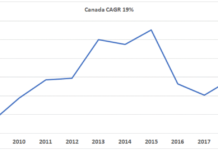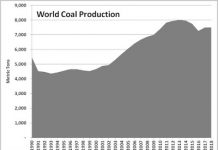by Elaine Thompson
Bloomberg New Energy Finance, in an executive summary of its New Energy Outlook 2017 report, predicts renewable energy sources will represent almost three-quarters of the $10.2 trillion the world will invest in new power-generating technology.
Analysts outline several reasons for this increase in spending, such as the decreasing costs of wind and solar and consumers’ increasing interest in solar panels. Competition between power sources also continues to grow, with products like utility-scale batteries upsetting coal and natural gas’s roles in the marketplace.
But more importantly, state-driven renewable portfolio standards pave the way for additional ventures in renewable energy technologies, particularly when it comes to wind power. Another element is electricity deregulation, a mandate initiated by the federal government in the 1990s. Thanks to it, the decision to regulate or deregulate electric markets now rests on individual states.
How Deregulation Creates Competition in the Electric Market
To understand how the legislation on deregulation influences states, clean energy companies, and renewable energy stock prices, you first need to understand regulation. If a state chooses to regulate electricity, consumers are essentially locked into a single electricity provider and its set prices.
Andrew Kleit, professor of energy and environment economics at Pennsylvania State University, explains in an interview with The Wall Street Journal, “In a regulated system, government agencies make basic production and grid-access decisions, and set electricity rates in a way that guarantees utilities a certain rate of return on capital investments and other approved costs. Because utilities’ profits are a function of how much they spend, there is little incentive to cut costs and increase efficiency.”
The situation occurs in many states, including Utah. There, Rocky Mountain Power (RMP) provides power to the majority of the state. The provider also is vertically integrated, meaning it owns every part of the supply chain from generation and transmission to distribution.
Because of that, consumers possess little, if any, choice when they start looking for an electricity provider. It’s RMP or nothing. Consumers sometimes encounter challenges, too, when they desire renewable energy options because RMP and state agencies regulate alternative energy sources and their use.
Texas, however, offers a counterpoint to Utah. The Texas electricity market is deregulated, resulting in competition and consumer choice. People can shop around and find the provider with the best prices, billing practices, or services.
How Deregulation Affects Growth in the Energy Sector
Just Energy (JE) uses deregulation to its advantage, attracting consumers who want to avoid fighting with local utility companies. The renewable energy provider is succeeding with its efforts—since its founding in 1997, it has come to parent several subsidiaries, including Amigo Energy, Hudson Energy, Just Energy Solar, and TerraPass. It also plans to continue its expansion into other deregulated states and nations.
However, electric regulation doesn’t prevent providers from taking steps toward a greener, cleaner future. Puget Sound Energy, for example, resides in Washington, another regulated state. It works within the state’s guidelines to provide clean energy through its green tariff, which allows the provider to sell renewable energy to business customers on a subscription basis.
Another energy provider named Ameren (AEE) also offers an interesting insight to the energy market. It provides energy to both Missouri and Illinois, but the former is regulated while the latter is deregulated.
Ameren views the hurdles that come with this split as no hurdles at all. It recently announced its plans to generate more electricity through solar and wind in Missouri to further reduce carbon emissions. Ameren disclosed few details about the initiative, but the provider presumably could use green tariffs or power purchase agreements (PPAs) to facilitate this goal.
How Deregulation Affects Your Energy Company’s Future
Regulation and deregulation are only two of many factors affecting renewable energy companies and stocks. But the two are worthwhile considerations because they impact the ease with which an energy provider can innovate and iterate. By understanding that reality, investors can make more informed decisions when selecting which company to back on the stock market.
How is this information going to affect the future prospects of your renewable energy company? If a state is deregulating or changing renewable energy policies, how can you know which companies will be helped or hurt?
If a company was a main utility provider in a state shifting to deregulation, it might expect to see a loss in its consumer base as it begins competing with other providers. However, in the same scenario, a company that has a good product, is run well, and is connected to its customer base will likely succeed and find that more competitive economic environment to be profitable.
It can be difficult to keep up with conversations about energy regulation—they vary by state, and discussions constantly evolve as politics change and social demands shift.
An investor can use their knowledge of regulation to have a better understanding of how much market competition their company might be facing or how much bureaucratic meddling might go on.
For consumers, the bottom line is that no matter if a state is regulated or deregulated, renewable energy yields lower costs and reduces future price risk. How a state is regulated will make the difference as to whether local utilities profit from the transition, or lose business to more nimble renewable energy providers.
Elaine Thompson is a freelance writer whose work focuses on consumer technology and sustainability. As an outdoor enthusiast, she’s passionate about writing that highlights renewable energy in a substantial way.








